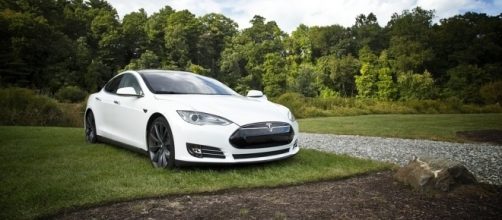A recipient of the National Medal of Science, as awarded by former President Barack Obama, John Goodenough, who invented the lithium-ion battery more than 30 years ago, has filed a patent, as well as published his findings with Energy & Environmental Science, with regard to a new, safer battery that charges in minutes, and holds up to three times more power. Goodenough and researchers at the University of Texas claim that the new battery isn't capable of exploding, catching fire, or being damaged, because it makes use of novel solid-state technology.
The inventor issued a statement, reported by NBC, that "Cost, safety, energy density, rates of charge and discharge and cycle life are critical for battery-driven cars to be more widely adopted." NBC notes that advancements in batteries occur fairly frequently, but that "what's different this time is that he's John Goodenough." Donald Sadoway, with the Massachusetts Institute of Technology stated that "When John Goodenough makes an announcement, I pay attention."
New John Goodenough battery uses glass, sodium
The new batteries replace lithium with less expensive, and toxic, sodium, and liquid electrolytes with glass electrolytes. Glass is said to be superior than liquid at holding consistently the same amount of charge over many uses.
It has been noted that lithium-ion batteries only hold charges effectively for about 500 cycles. The new, solid-state batteries are said to be good for 1,200 cycles.
Other advantages of John Goodenough's latest invention are a reduced risk of fire in case of overcharging a battery, or charging it too quickly, as well as a wider range of temperatures under which optimal performance may be achieved. Shorter charge times, combined with longer-lasting charges, promise to extend the range of electric vehicles, such as those produced by Tesla, Inc. (Nasdaq: TSLA). Shares of Tesla have tumbled since the firm reported earnings that missed street expectations, on February 22.
Less environmental impact than lithium-ion cells
Tesla has plans to spend $5 billion to build its yet-to-be-completed Gigafactory, near Clark, Nevada, which will be the largest producer of lithium-ion batteries in the world. It is unclear how Goodenough's invention might affect demand for Tesla's lithium-ion batteries, as well as if there are methods by which the new, solid-state, sodium, glass batteries might be produced in the Tesla Gigafactory in the future. Tesla stock was down by 1 percent today, along with the general market.
Producing batteries using sodium is reported to have the potential to reduce the associated environmental impact, as sodium is readily available from seawater. Lithium, by comparison, is described as "a volatile metal" that needs to be separated from ore in which is contained: a dirty process, when compared with obtaining sodium. Sodium is also cheaper.

